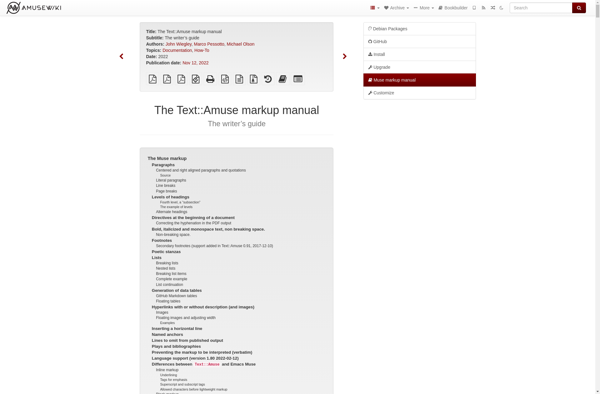Pollen
Pollen is an open-source publishing system for books and websites. It allows authors to write content in a lightweight markup language and build beautiful, responsive websites and ebooks without needing to know HTML/CSS.
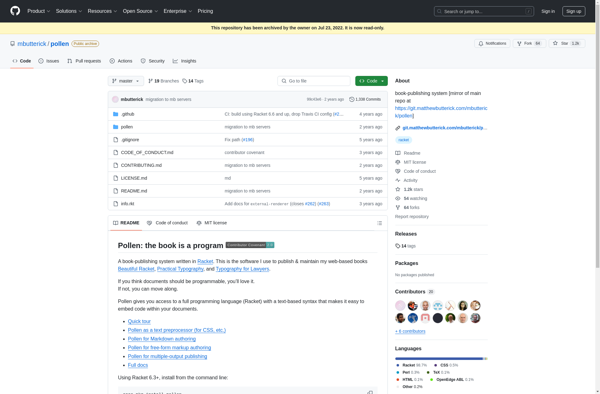
Pollen: Open-Source Publishing System
An open-source publishing system for books and websites, allowing authors to write content in a lightweight markup language and build responsive websites and ebooks without HTML/CSS knowledge.
What is Pollen?
Pollen is an open-source publishing system designed for writing beautiful books and structured content using a lightweight markup language. It was created by Matthew Butterick to offer an alternative to traditional publishing workflows.
Some key features and benefits of Pollen include:
- Write content using a simple, Markdown-inspired syntax called “Pollen markup”. Focus on your words without worrying about visual presentation and styling.
- Easily publish books and documents in multiple formats like PDF, ePub, HTML, and more from the same source files.
- Cleaner separation between content and presentation code compared to solutions like LaTeX.
- Produce responsive, accessible websites powered by Pollen’s built-in HTML and CSS generator.
- Template system for customizing the visual design independent of content.
- Typesetting control for professional-quality print books and ebooks.
- Component-based approach allows building up documents from reusable modules.
- Scriptable in Lisp for advanced programmatic generation of books and sites.
- Free and open source software (FOSS) with an MIT license.
With its focus on semantic authoring and system automation, Pollen helps simplify and enhance digital publishing workflows for writers and small teams.
Pollen Features
Features
- Lightweight markup language for writing content
- Built-in templating for styling content
- Modular design allows extending functionality
- Static site generator for building websites
- Ebook generator for building epub and PDF books
- Live preview server for seeing changes in real-time
- Extensive theming and customization options
Pricing
- Open Source
Pros
Easy to write content without learning HTML/CSS
Great documentation and community support
Open source and free to use
Very customizable and extensible
Can output to multiple formats like websites and ebooks
Cons
Steeper learning curve than WYSIWYG editors
Less intuitive than GUI site builders
Requires some technical knowledge to customize
Not as feature-rich as some commercial options
Official Links
Reviews & Ratings
Login to ReviewThe Best Pollen Alternatives
Top Development and Publishing and other similar apps like Pollen
Here are some alternatives to Pollen:
Suggest an alternative ❐Groff
Groff is an open source text processing and typesetting system for the Unix/Linux operating system. It is the GNU implementation of the troff document formatting system found on Unix systems.Groff builds on troff by adding enhancements and improvements for increased typography capabilities while maintaining compatibility with existing troff document formats....
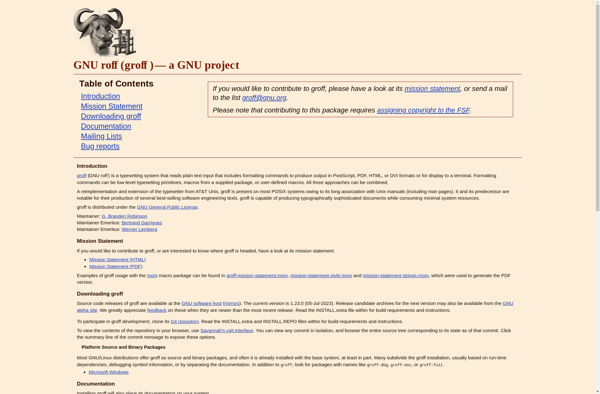
DocBook
DocBook is an XML-based markup language that is well-suited for writing technical documentation. It has a large number of semantic markup constructs that allow you to clearly identify important components of documentation such as chapters, sections, code examples, figures, tables, notes, warnings, etc.The advantage of DocBook over using something like...
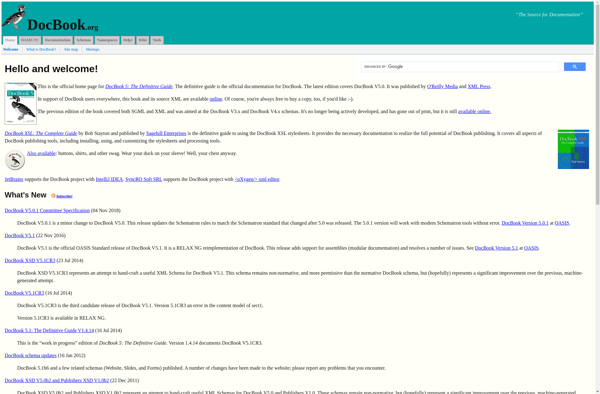
ConTeXt (Typesetting System)
ConTeXt is an open-source document preparation system and typesetting engine, designed by Hans Hagen in the early 1990s as an alternative to LaTeX. It is implemented mainly in the TeX macro language and offers extensive typographical capabilities beyond what is available in LaTeX.Some key features and advantages of ConTeXt include:Highly...
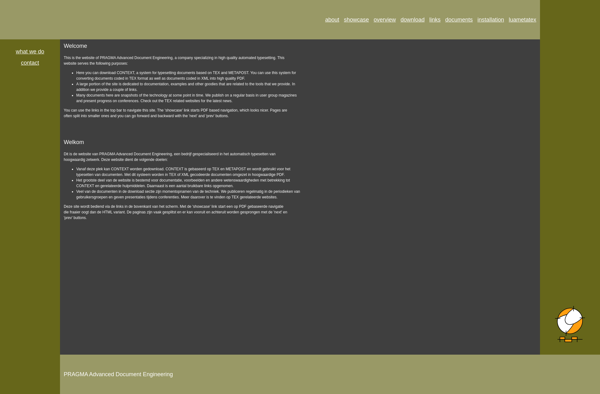
Text::Amuse
Text::Amuse is a Perl module that provides functionality for generating random amusing text based on context-free grammars. The text is produced by combining words and phrases based on a set of grammatical rules defined in the module.Some key features and usage scenarios for Text::Amuse include:Generating humorous nonsensical sentences, poems, dialogues,...
